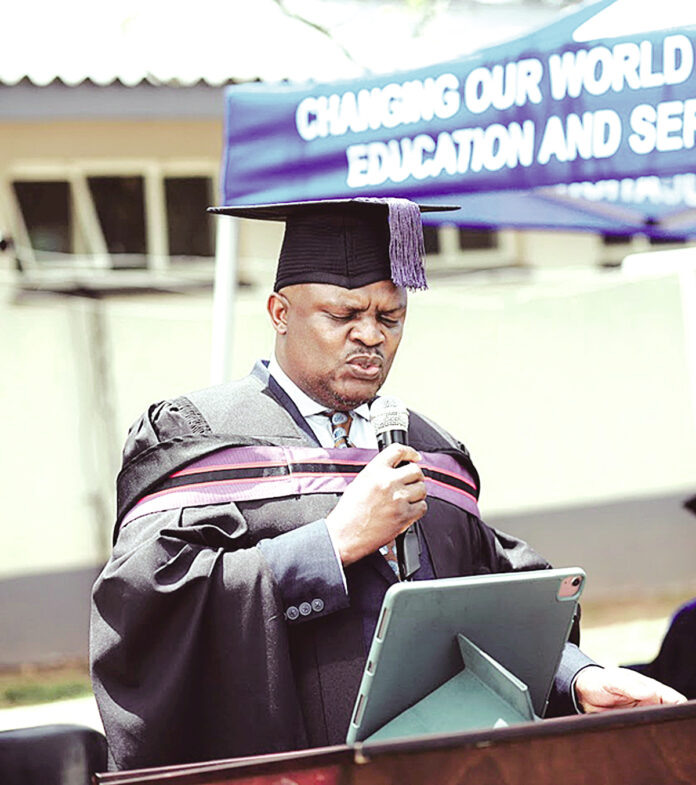The integration of Artificial Intelligence (AI) into primary education is the focus of an inspirational address delivered by Mandla Luphondvo, Head of Strategy and Communications at the Central Bank of Eswatini (CBE), during the John and Valera Allen Baha’i Primary School’s recent speech and prize-giving day.
Addressing the theme, “Incorporating AI in teaching and learning in the 21st Century at the primary levell, Luphondvo positioned AI not as a futuristic threat, but as a necessary and efficient tool for modern education.
Luphondvo began by defining AI and its relevance to the fast-evolving world.
He explained that AI is simply a computer system that learns from data and provide helpful responses, saying, “It’s not a real person or an intelligent robot, but rather a useful tool that processes information quickly and efficiently.”
For educators, AI offers a crucial reprieve from administrative overload, transforming them from task-masters into focused mentors.
“AI can handle’s routine tasks like grading quizzes and sourcing learning videos, freeing teachers to focus on personal guidance and pupils well-being.
In this way, AI serves as an efficient assistant for educators,” Luphondvo said.
He strongly affirmed that technology was designed to support, not supersede, the human element in teaching.
“While technology can be daunting, AI is designed to support, not replace, your role. Like a pilot using smart tools, AI manages routine tasks so you can focus on guiding students. Your empathy, mentorship and influence remain essential,” he said. For pupils aged six to 13, AI’s greatest benefit is its ability to personalise the learning journey. Recognising that people learn in different ways, by seeing, listening, or doing, AI adapts to every student’s individual needs.

“AI personalises learning by adapting to your needs: it offers games or simple explanations if you’re stuck, and tougher problems if you want a challenge.
“This ensures learning is engaging and suited to your level,” Luphondvo said.
He also offered words of encouragement to the younger learners, ensuring them that AI is a helper on their learning path.
“If learning feels hard, remember that everyone starts somewhere AI can support you with personalised practice and lessons, helping you progress at your own pace. Don’t give up on learning,” he said.
The head of strategy and communications made it clear that AI is a tool for all, including himself.
He admitted to using the technology to enhance his own productivity, sharing a candid quote: “To reduce the length of my speech, I had to use AI yesterday, I had a training session where I used AI to generate presentation slides.”
Addressing the parents, he stressed their role as the first line of defence and guidance in the digital age.
“As your child’s first teacher, it’s important to understand the AI tools they use.
“Bylearning how these tools work, you can guide their safe and ethical use, discuss their learning, and help them follow safety rules. Your knowledge of AI is key to providing effective guidance online,” he said.
In conclusion, Luphondvo urged all stakeholders, educators, parents and learners to embrace the future with responsibility and optimism.
He closed with a powerful final thought for the pupils: “Remember that knowledge dispels darkness, but character lights your way.”









